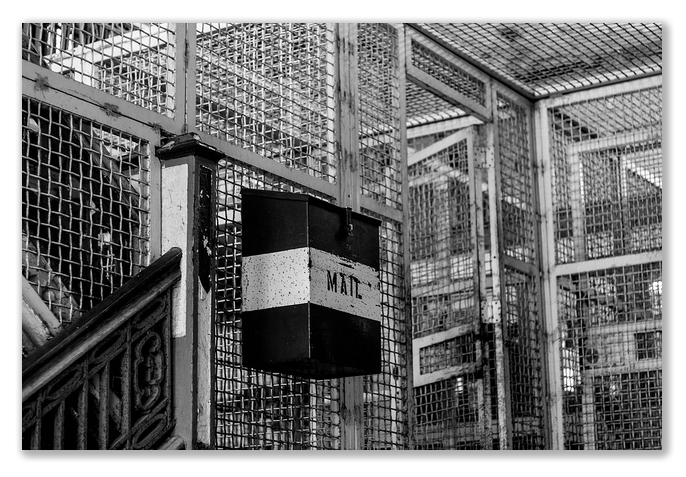We post news and comment on federal criminal justice issues, focused primarily on trial and post-conviction matters, legislative initiatives, and sentencing issues.

TORT CLAIM ADMINISTRATIVE REVIEW SUBJECT TO MAILBOX RULE, 7TH CIRCUIT SAYS
 Prisoners face a procedural snare in trying to file lawsuits, and the many pleadings related to them, on time. An inmate prepares a mailing and turns it over to the prison mail system. That system delivers it to the Postal Service, usually in a timely manner, but often enough, only when the chronically understaffed prison staff gets around to it.
Prisoners face a procedural snare in trying to file lawsuits, and the many pleadings related to them, on time. An inmate prepares a mailing and turns it over to the prison mail system. That system delivers it to the Postal Service, usually in a timely manner, but often enough, only when the chronically understaffed prison staff gets around to it.
Inmates’ lack of control over delivering legal filings to courts have led to many procedural deadlines being blown, and meritorious legal claims being lost. That lack of control was behind the Supreme Court’s adoption of the “prison mailbox rule” in Houston v. Lack. The rule holds that a court filing is considered to be received by the court the moment an inmate deposits it in the institution legal mail system.
The “legal mail” system may vary a bit from institution to institution, but generally an inmate delivers a completed mailing with proper postage to a designated correctional officer. That officer stamps the envelope with a “legal mail” stamp and logs receipt of the item in an official record. When the inmate has done that, the item is deemed received by the court at that moment, regardless of how long it may take to arrive at the court.
The “mailbox rule” has been written into the Federal Rules of Appellate Procedure 4(c) and the Rule 3(d) of the Rules Governing § 2255 Proceedings, and applies to other federal court proceedings as well.
 Last week, the 7th Circuit broke down one of the last “mailbox rule” barriers. Before filing a Federal Tort Claims Act case (which is the only means of suing the government for negligence and other tort claims), a prisoner has to exhaust administrative remedies by sending the claim on federal form SF-95 to the Bureau of Prisons regional office. The BOP has always required that the form be received at its office by the deadline, which is two years after the incident giving rise to the tort claim.
Last week, the 7th Circuit broke down one of the last “mailbox rule” barriers. Before filing a Federal Tort Claims Act case (which is the only means of suing the government for negligence and other tort claims), a prisoner has to exhaust administrative remedies by sending the claim on federal form SF-95 to the Bureau of Prisons regional office. The BOP has always required that the form be received at its office by the deadline, which is two years after the incident giving rise to the tort claim.
The 7th held that “pro se prisoners face the same obstacles sending administrative forms as they do court documents. For both filings, the pro se prisoner has no choice but to entrust the forwarding of his filing to prison authorities whom he cannot control or supervise.”
The 2nd Circuit is the only other circuit to share the 7th’s holding. Other circuits, especially the 5th, have so far refused to extend the “mailbox rule” to administrative filings.
Censke v. United States, 2020 U.S. App. LEXIS 1580 (7th Cir. Jan. 17, 2020)
– Thomas L. Root

